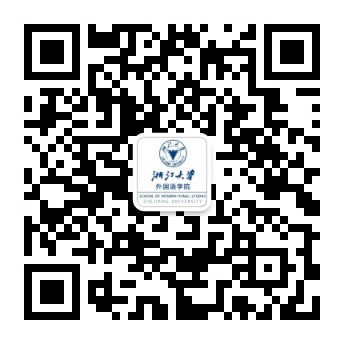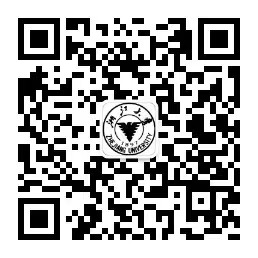一、报考条件
二、招生计划
150人
三、招生领域
教育管理、学科教学(语文、英语)、现代教育技术。其中,现代教育技术领域只对中、小学从事信息技术课程教学的教师开设。
四、考试科目
政治理论、英语、教育学和心理学综合、专业考试(包括面试),共计4门。其中,政治理论和专业考试由我校单独组织,在复试时进行;其余2门全国联考。
五、联考大纲
英语:《在职攻读硕士学位全国联考英语(考试大纲》(科学技术文献出版社);其中,学科教学(英语)专业方向使用《在职攻读教育硕士专业学位全国统一(联合)考试大纲(英语二)》(北京师范大学出版社)
教育学和心理学综合:《在职攻读教育硕士专业学位全国统一(联合)考试大纲及指南》(教育学、心理学)(北京师范大学出版社)
六、报名方式
采用网上报名与现场确认相结合的方式。
考生于
在网上填写报名信息前,必须认真阅读所报考学位类别应具有的条件,确定自己是否符合报考资格。考生应具有良好的道德品行,诚信负责,不符合报考条件或提供虚假信息的考生,学校不予录取,责任由考生自负。必要时,我校将委托有关权威部门对考生的学历、学位证书进行认证。如考生持境外学历、学位报考,须经教育部留学服务中心认证,资格审查时须提交认证报告。考生报考资格审查在复试时进行,具体事项另行通知。
考生可于10月17日后登录信息平台下载准考证
七、考试时间
八、录取办法
录取工作由我校自行组织和确定,录取分数线由我校自行划定。我校根据考生入学考试成绩(含复试),择优录取。
各类别专业学位调剂录取工作,限在浙江省院校之间进行,不进行跨省院校之间的调剂录取;各硕士专业学位均不进行跨学位类别或跨专业领域的调剂录取。
九、授课方式
学科教学(英语):寒暑假授课,其它领域:暑假授课
十、培养费
2万元
十一、其它事项
1、招生培养学院:
学科教学(英语):外语学院,联系电话:88206251
其它领域:教育学院,联系电话:88273714
2、联考各科目考试成绩一次有效。
3、坚决杜绝我校教师参与任何形式的专业学位研究生考前辅导或委托中介机构招生等违规行为。主动接受社会监督。
附:专业基础课“语言学与语言教学”参考书及参考题型
|
一、专业基础课“语言学与语言教学”参考书: 1、Jack C. Richards, 2000, Beyond Training(超越专业技术训练),外语教学与研究出版社,人民教育出版社,剑桥大学出版社; 2、George Yule, 2000, The Study of Language (语言研究),外语教学与研究出版社,剑桥大学出版社; 3、Hongqin Zhao, 2009, Developing Professional Knowledge about Teachers (发展关于教师的专业知识 ),浙江大学出版社。 二、2013年教育硕士专业学位入学考试专业基础课试题参考题型 专业科目名称:语言学与语言教学 注意:答案必须写在答题纸上,写在试卷或草稿纸上均无效。 1. The learning of a second language is a simple process, involving a seemingly finite number of variables. 2. Learning is a relatively permanent change in a behavioral tendency and is the result of reinforced practice. 3. The functionalists believe that language could be dismantled into small pieces or units and these units could be described scientifically, contrasted, and added up to form the whole. 4. That learning takes place in the human organism through a meaningful process of relating new events or items to already existing concepts is put forward by David Ausubel. 5. Deductive reasoning is a movement from a generalization to specific instances: specific facts are inferred or deduced from a general principle. 6. Stephen Krashen, an American professor, is best known for his concepts: the monitor hypothesis, the affective filter, the distinction between learning and acquisition, and the i+1. 7. Truckers, pilots, salespersons and farmers use words and phrases unique to their group. This stylistic variation is referred to as register. 8. A language test that is designed to find out a particular aspect of a particular language is called a placement test. 9. Relatedness of meaning accompanying identical form is technically known as polysemy. That is, one form has multiple meanings related by extension. 10. Some words are formed from the initial letters of a set of other words. This is known as blending. Part II. Define the Following Terms (25%) 1. collocation 2. affective filter 3. inter-language 4. coinage 5. language acquisition Part III. Choose TWO of the three questions and give your answers to them in NO MORE than 300 words for each question. (30%) 1. Is there such a thing as the best teaching method? If yes, what is it? If not why not? 2. Do you think language teachers need to become linguists before they become master teachers? 3. Some scholars believe that it is better to start to teach a foreign language like English earlier while others think that early start does not have any advantage. What is your view on this issue? Part IV. Analyze a Critical Incident (关键事件/教学案例分析) occurred in your own teaching or learning experience (30%) : 1. Describe the incident within 100-200 words and suggest explanation and meaning within the immediate context; 2. Find a more general meaning and classification /significance of the incident, e.g. what teaching/learning problem is reflected in the incident and how can it be useful for other teachers to learn about? |



